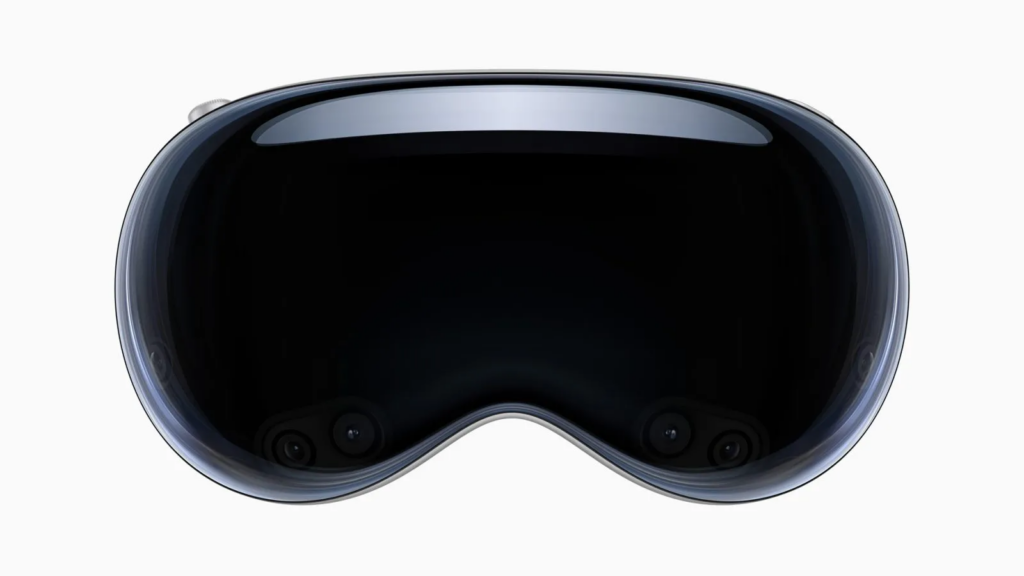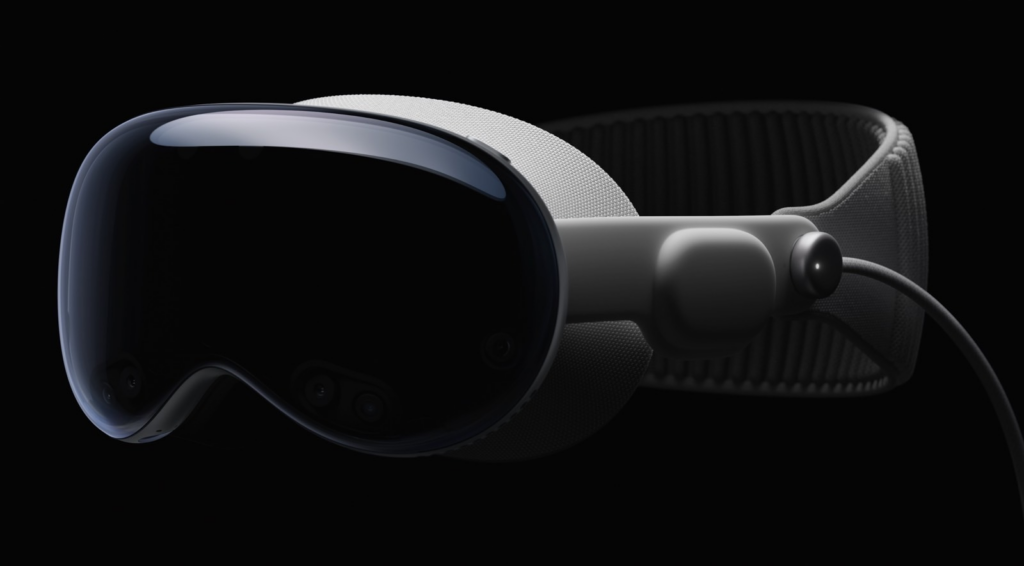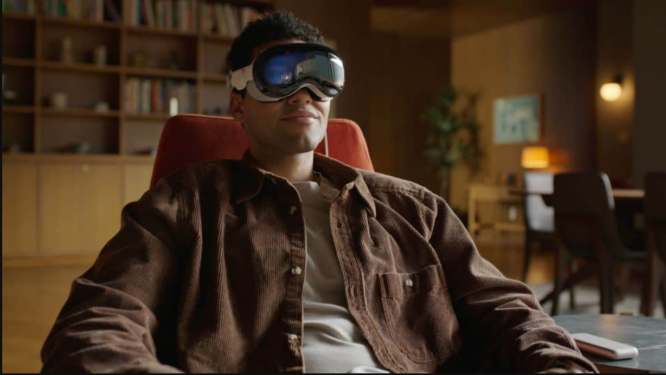Apple took a monumental step forward in the ever-changing world of technology with the June 5 release of its innovative Apple Vision Pro.
The purpose of this device, which bridges the divide between the digital and physical worlds, is to keep users grounded in the present while cultivating connection and engagement.
The Vision Pro expands the capabilities of applications by transcending the limitations of conventional display borders and nurturing a fully three-dimensional user interface.
It combines Augmented Reality (AR) and Virtual Reality (VR) capabilities and features a 4K display for each eye, a suite of 12 cameras, five sensors, and Apple’s M2 and R1 processors.
visionOS, the world’s first spatial operating system, is Vision Pro’s sustenance. It allows users to interact with digital content as if it were tangibly present, a feat made possible by its cutting-edge design and ultra-high-resolution display system with 23 million pixels across two displays. This innovative technology is powered by Apple’s custom-designed dual-chip silicon.

The Vision Pro’s $3,500 price may limit its use across sectors.
However, the device’s powerful specifications, which enable real-time display of the outside world via video inputs within the headgear, make it the first device capable of delivering high-quality virtual reality and augmented reality experiences.
Vision Pro clearly displays Apple’s emphasis on security. Optic ID uses the uniqueness of your iris to authorize purchases and access passwords, with the data encrypted and stored on your device alone.
Additionally, data from cameras and sensors is processed at the system level, eliminating the need for applications to access the device’s environs for spatial experiences.
However, specialists from MacPaw, a Kyiv-based software development company with nearly 15 years of experience that has provided Apple users with products such as CleanMyMac and ClearVPN, have expressed concern regarding the Vision Pro’s potential ramifications.
“Digital persona and Optic ID concern me because they pose privacy concerns. It appears to be something from the television program Black Mirror.
There were other options available, such as using a Fingerprint ID to activate the device, which is utilized by other companies. In addition, having a digital persona that is almost human but not quite could make things feel odd and detract from the social aspects that Apple has been developing for years.”
In a similar vein, Oleksandr Pronsky, Design Manager at CleanMyMac by MacPaw, discussed the societal implications of immersive technology, suggesting that it could have a negative effect on social interactions and mental health as a whole.
In addition to its high price, the Vision Pro has a number of faults. It still seems unsettling, wouldn’t you say? A video depicts children vying for their father’s attention while he is engrossed in virtual reality.

A MacPaw senior product designer voiced privacy concerns about Digital persona and Optic ID.
Ivan Petrukha, senior software engineer at MacPaw, confirmed that Apple designed the Vision Pro with privacy and security in mind.
He explained that third-party developers will not have access to the device’s cameras and sensors, and that your ocular fixation will be inaccessible to everyone, including Apple. In addition, the biometric authentication feature of Optic ID stores your biometric information locally and exclusively in the Secure Enclave subsystem.
Viktor Kubashok, a Senior Malware Research Engineer at MacPaw, discusses potential security concerns by describing how Optic ID, a new feature that protects Apple Vision Pro, analyzes your ocular retina.
This information is safeguarded by Secure Enclave, is completely encrypted, and is inaccessible to other applications. The processed information is not transmitted to Apple, third-party applications, or websites.
Apple claims that only the final selections are transmitted, which occurs when the user taps their fingertips together.
However, he noted that hackers may attempt to circumvent the Optic ID authentication system. Despite this, he remarked that Apple’s stringent security measures make it difficult to anticipate such threats.
Invasion of privacy through zero-day exploits, for instance, remains a concern. Citizen Lab and Microsoft researchers allege that Israeli spyware company QuaDream exploited a zero-day vulnerability to eavesdrop on journalists, political opposition figures, and an NGO worker across multiple continents.
The Apple Vision Pro is, nonetheless, an undeniable advancement in spatial computation. As time passes, the tech community will closely observe how these initial concerns are addressed, as well as how this device may reshape our digital interactions.


